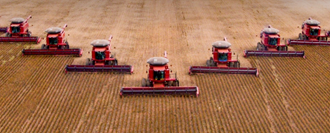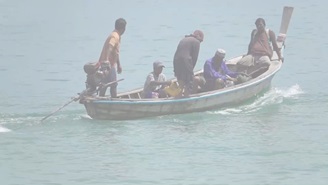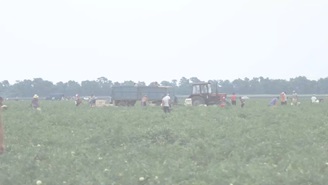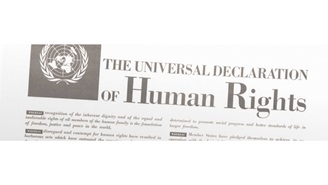Modern Slavery
It is anticipated that modern slavery will increasingly put companies at a competitive disadvantage through, for example, operational disruptions, compliance risks and loss of business due to damage to reputation. The engagement’s objective is to ensure high-risk portfolio companies adopt rigorous strategies on modern slavery.
Feeding the Future
Agriculture is estimated to account for one-quarter of the world’s greenhouse gas (GHG) emissions, 80 percent of deforestation, 70 percent of water use and 78 percent of ocean and freshwater pollution. This engagement theme aims to contribute to a more sustainable trajectory for the future of food.
Children’s Rights – the smallest things can have the biggest impact
Imagine there was a stakeholder group that formed a third of the global population and was pertinent to business in various ways: as customers, as employees’ family members, and as key participants in local communities and in society at large. These people would be guaranteed to run the world in the future. Almost everyone would know and be related to representatives of this network, and many would consider them the most important people in their lives. You would expect companies and investors to assess the impact they have on these powerful influencers and try to capitalise on the related opportunities, but that is rarely the case. This is because the group I’m talking about is children. When it comes to incorporating children’s rights and needs into business and investment strategies, there is still a long way to go given their number and potential.
Slavery in the Seafood Industry
On January 30, 2019[i], Thailand became the first Asian country to ratify the International Labor Organization’s (ILO) Working in Fishing Convention (C188). This comes after years of criticism over illegal, unreported and unregulated fishing (IUU) and findings of slavery and human trafficking within its fishing industry.
The True Cost of Tomatoes: Insights from our Supply Chain Engagement Trip
In late 2019, Sustainalytics traveled to Italy as part of our Stewardship and Risk Food Supply Chain Engagement. We embarked on this trip with a group of investors and Nestlé to gain an understanding of the working conditions in the tomato sector. The goal of this engagement program is to address risks of child labor in the targeted companies’ supply chains as well as remediate potential adverse labor rights impacts.
How Prepared are Australian Companies for the Modern Slavery Act?
Australia is being scrutinized for lagging on climate action and for a string of scandals in its financial sector, but the country will soon be a leader in fighting human rights abuses and modern slavery practices, as it is set to become one of few countries in the world to adopt a historic Modern Slavery Act (MSA).
Migrant Detention at US Borders: What investors need to know
Over a five-week period in May and June 2018, 2,342 immigrant children were forcibly separated from their families at detention centers along US borders[1]. This was the result of the Trump administration’s “zero tolerance” policy of referring for criminal prosecution people who cross the border illegally, including asylum seekers. This policy and the resulting family separation have been criticized as unconscionable and damaging by the United Nations high commissioner for human rights, as well as by the American Association of Pediatrics.
Fair Living Wages in the Garment Sector: The Case of Bangladesh
Today marks the fourth anniversary of the deadliest accident in the garment industry. On 24 April 2013, the collapse of the Rana Plaza Building in Savar, Dhaka, Bangladesh resulted in the death of 1,200 workers and left several thousand injured. The tragedy was linked primarily to poor health and safety practices, but it also highlighted the intense wage pressure in Bangladesh’s garment industry. This issue is becoming more pressing with disputes over minimum wages having resulted in massive social unrest in December 2016 and January 2017.
Raising the Bar on Human Rights
In June 2011, John Ruggie, United Nations Special Representative on Business and Human Rights, presented to the UN Human Rights Council his Guiding Principles on Business and Human Rights: Implementing the United Nations “Protect, Respect and Remedy” Framework,1 the result of his six-year study on business and human rights.










